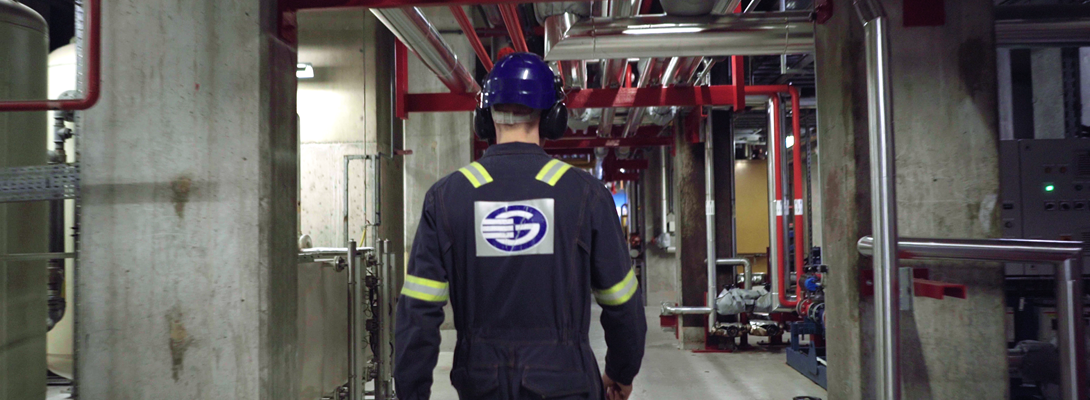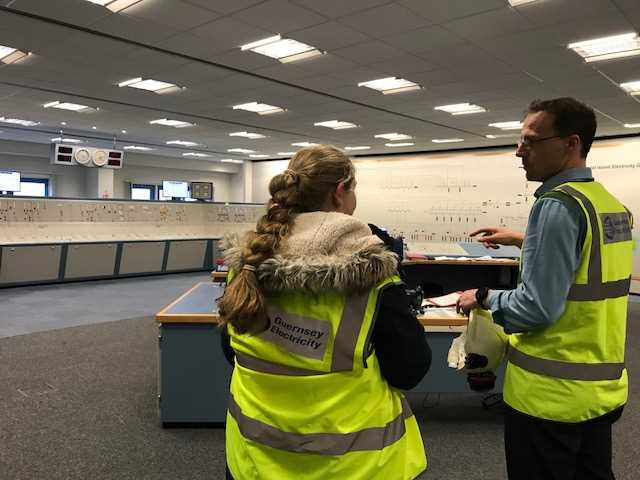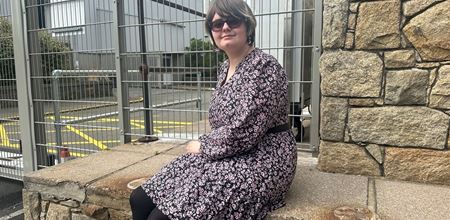If somebody told you they were a Shift Operator, would you have some idea what they do? If the answer isn’t a solid yes, we hope this interview with our very own Shift Operator Andy Beausire helps explain.
We're hiring for this role See our engineering roles
How does your job help keep the island running?
As a power plant operator, I help maintain the continuous supply of electricity to Guernsey. This includes preparing, operating and monitoring our electricity generators at the power station, troubleshooting issues, and collaborating with team members.
This helps to keep homes, businesses and essential services in power, even during bad weather or emergencies.
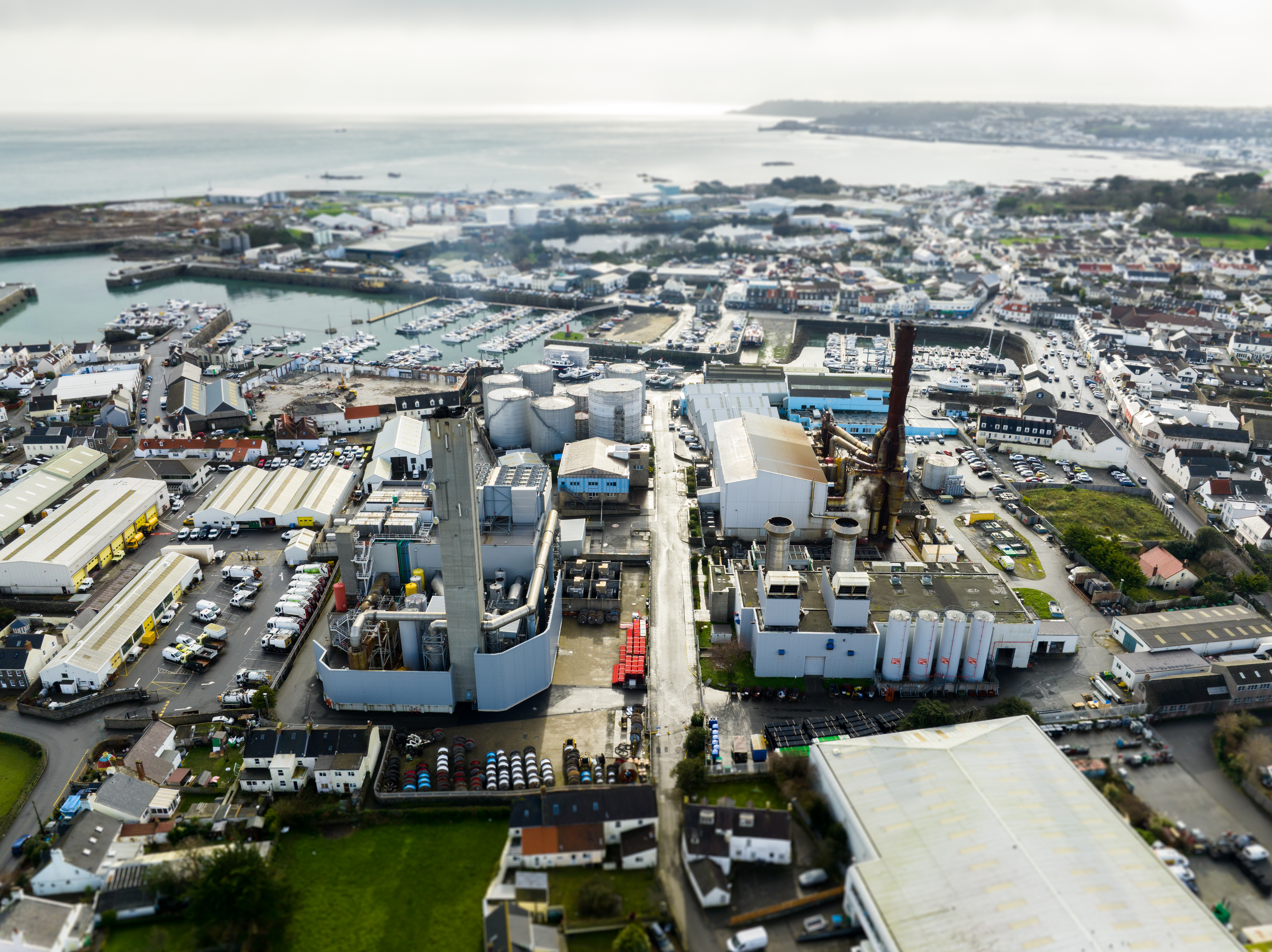
In a nutshell, what does a Shift Operator at Guernsey Electricity do?
During my shift I’m responsible for the day-to-day operation of the power station equipment. That includes making sure the machinery is running correctly, preparing and monitoring the on-island generators, and responding to any operational issues in tandem with islander’s demand for power.
See our Shift Operator job description
And as with all machinery, there’s also some servicing and repair work that needs doing too.
Specifically as a Shift Operator, I make sure our generators are always ready and operational for the daily changes in electricity demand. Although we work together, this is different to a Shift Engineer, who is responsible for overseeing the technical aspects of the power station using engineering principles. Some of my everyday jobs might include monitoring plant, adjusting controls, and performing maintenance checks on large machinery and 2000-tonnes worth of diesel generators.
Our electricity demand peaks and dips according to human behaviour and weather conditions - for example our main ‘peak demand’ is around 6pm, and after 11pm it gets very quiet on the grid when most people are asleep.
The first peak is usually around 8am, which means we’ll need to get everything started and working after the overnight rest period to make sure we can supply throughout the busy day and keep up with hourly changes. During the winter, we often need to have the generators running by as early as 5:30am.
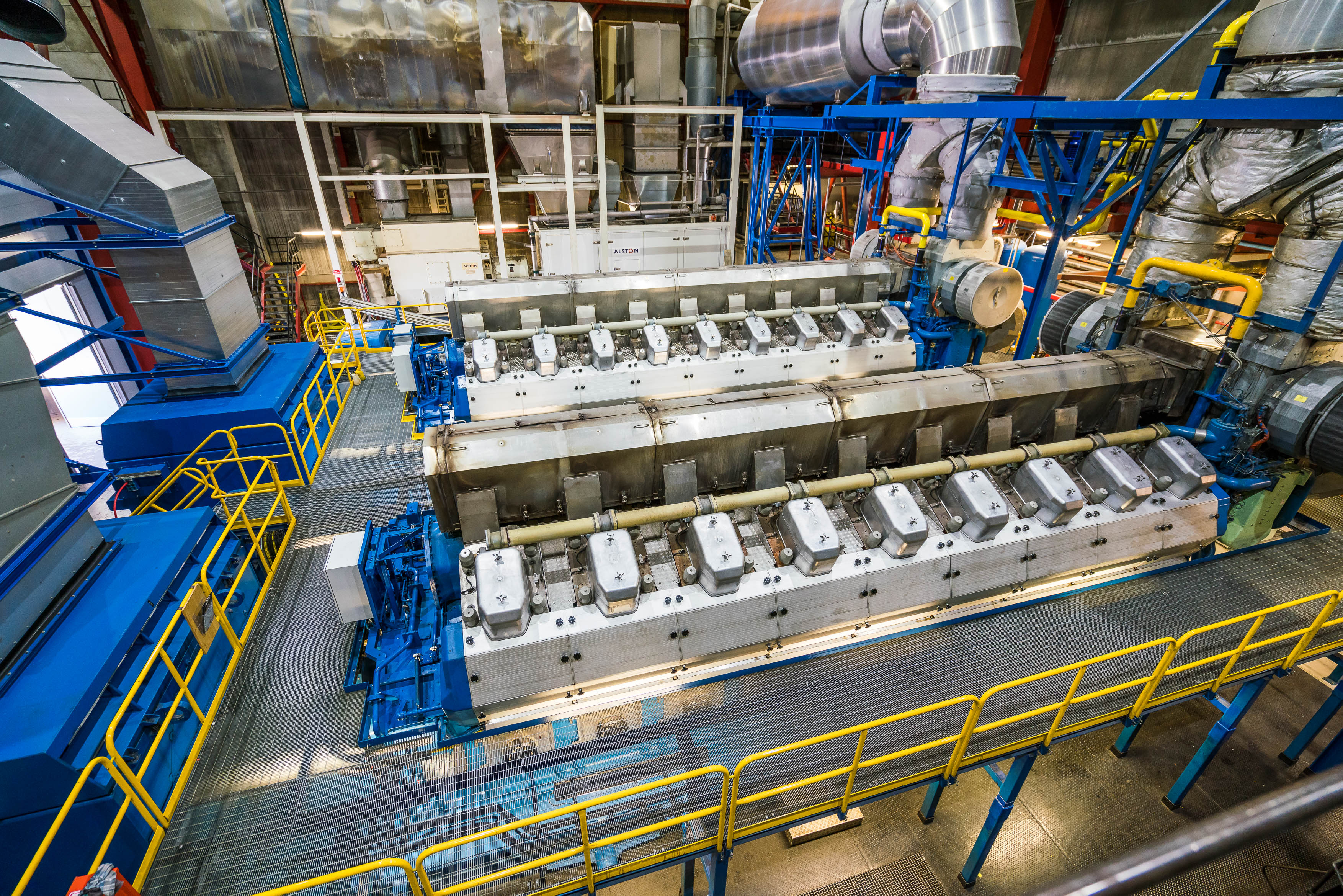
Can you share something about your work that not many people know about?
Christmas day is a time most people think must be busy on the electricity network, but actually the opposite is true. As most businesses are shut down and people are usually at home, overall there's less electricity used across the island.
But no matter the weather or time of day, electricity is 24-hour business. This means our teams work in patterns made up of early, late and night shifts, 24/7, 365 days of the year, to make sure everyone has the power they need - including on Christmas day.
What do you like best about being a shift operator?
As we’re dealing with substantial machinery that is crucial to everyday life, the work is very varied, with new challenges to face daily. It’s very different to most other careers available in Guernsey and isn’t a job you’ll easily get bored in.
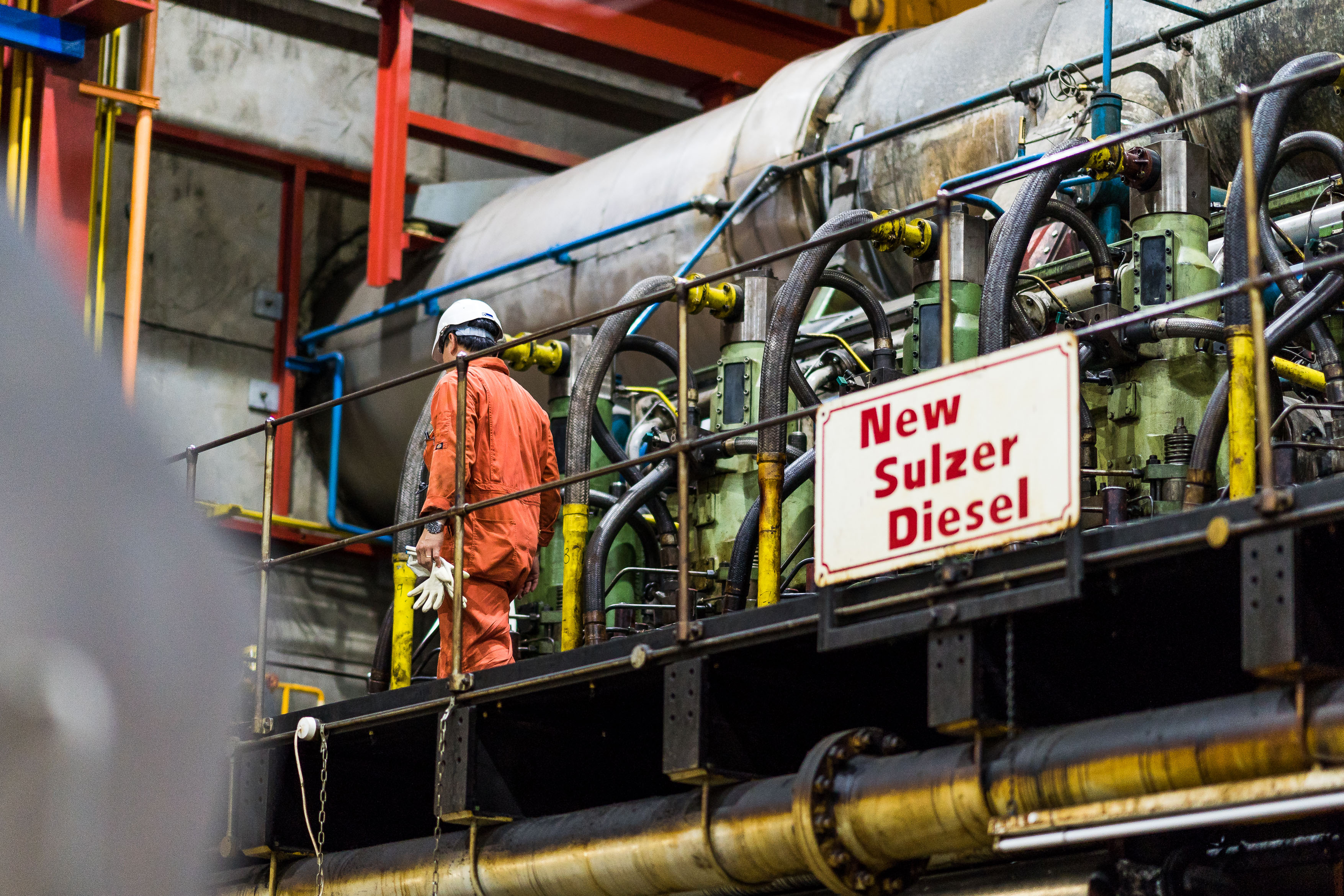
What qualifications or experience do you need to become a Shift Operator?
Mechanical, Engineering or Electrical qualifications and/or experience.
Do you work alone or as part of a team?
I work as part of a ‘shift team of 3’. This means as the Shift Operator, I work alongside a Shift Engineer and a Control Room Operator while I’m on my shift rotation.
There are 6 teams in total who help take care of our power supply 24/7, 365 days of the year.
In the power station, I focus on the hands-on operation and maintenance of the plant, communicating issues to my Control Room Operator and collaborating with my Shift Engineer for troubleshooting.
The Shift Engineer brings the technical engineering expertise in to help optimise the station’s performance as the island’s electricity demand fluctuates, working alongside myself and the Control Room Operator to problem-solve and maintain power.
See our Shift Engineer interview
The Control Room Operator oversees the overall operation, monitoring parameters including our electricity importation, while coordinating and facilitating communications to help us form the collaborative network needed during our shift to generate the island’s safe, reliable power.
See our Control Room Operator interview
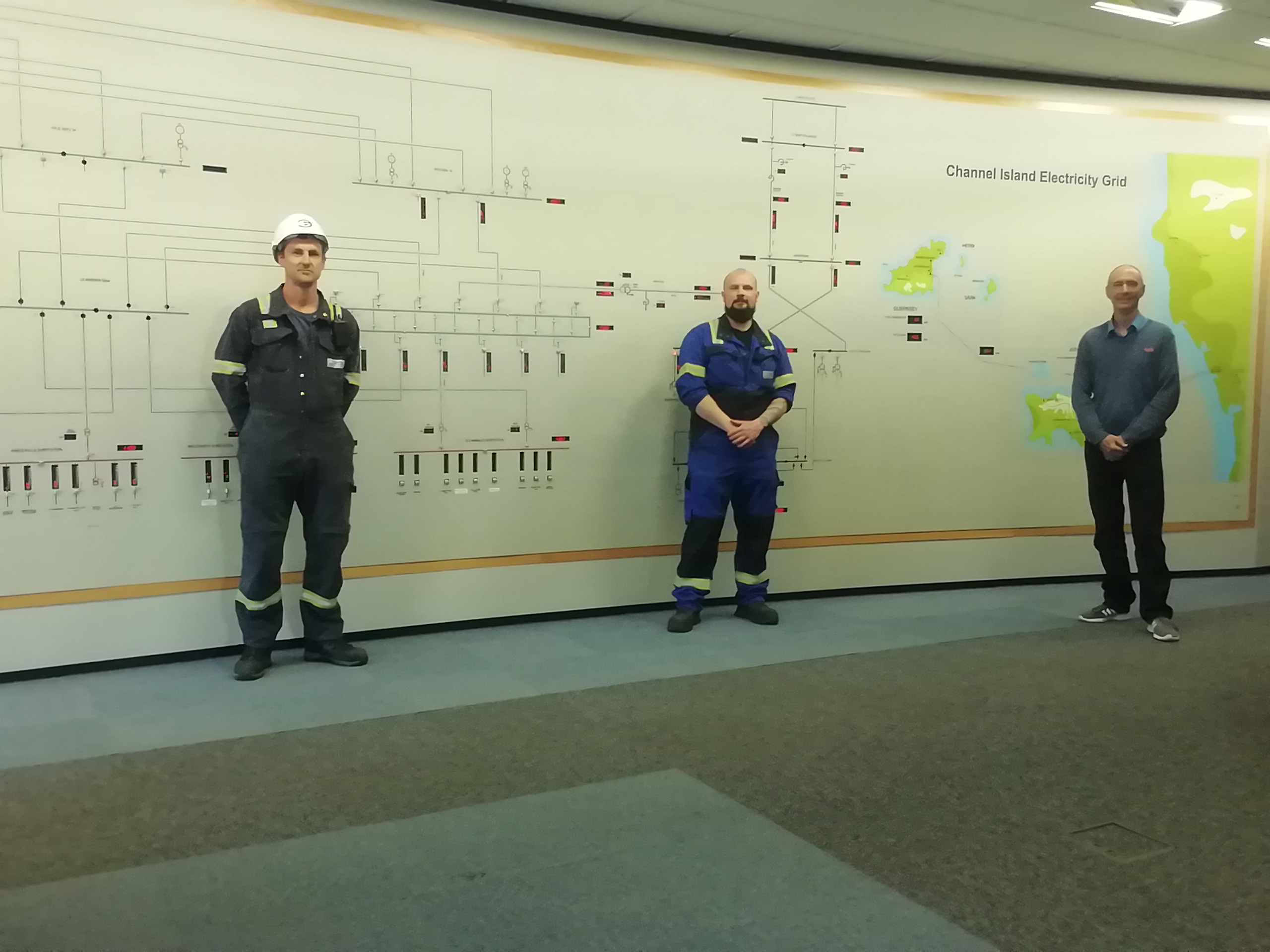
Pictured: One of our shift teams during the Covid 19 Pandemic. Despite many businesses being closed, our team in the power station were still needed everyday to keep the island in power.
What advice would you give someone interested in becoming a Shift Operator?
If you’re keen to work in mechanical and electrical, the best advice I would give is to contact us directly and come and see for yourself what the job involves. It’s hard to get across from the outside just how big and complex the site is, and you're welcome to come and see if it’s the right place for you.
I’d visited the power station site a couple of times before I applied and I found this approach really helpful to get an insight into what happens here and how it all fits together
What do you think are the best benefits offered by Guernsey Electricity?
Our permanent staff can be part of the employee pension scheme where the company will match our contribution to our pension fund every month up to an agreed percentage. Plus, for more everyday benefits, we also have a healthcare package that helps cover us for medical appointments, etc.
When is the busiest time of year for you?
Colder months keep us really busy. This is when Guernsey demands the most electricity, which means while it’s cold, dark and frequently raining, we run our generators a lot more to keep up with islander’s demand.
During the summer, the power station is not usually needed to keep up with demand, but we still need to run weekly tests to make sure it’s ready if needed. Our importation cable can usually supply 100% of the island’s demand as generally people use less electricity in the warmer, lighter months.
But when the nights get longer and the heating gets turned up, the power station then becomes a very busy place to be.
We use the graphic below to help show customers what our 'load profile' looks like during a typical weekday, and during winter the peaks can often be even higher.
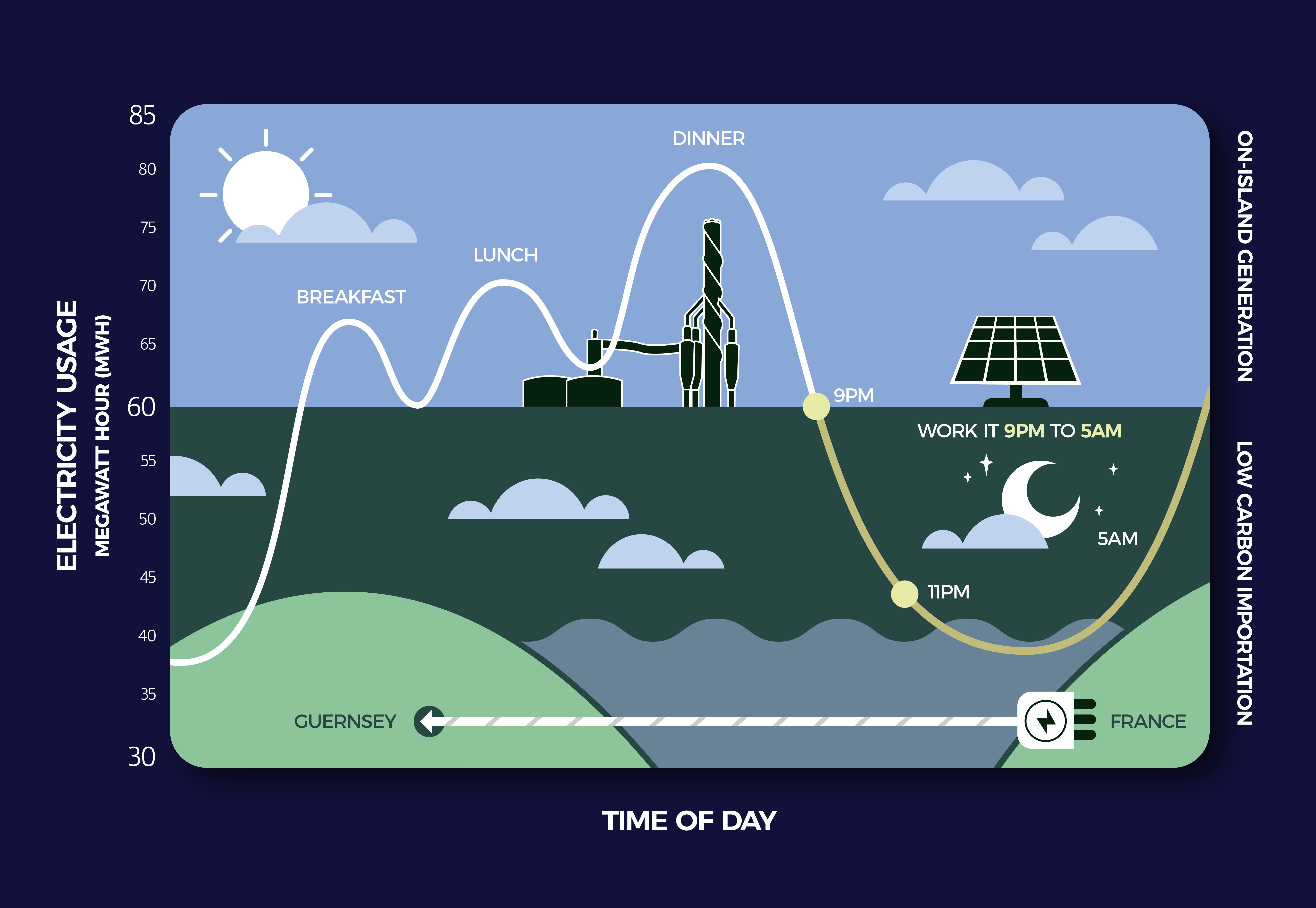
If there’s an unexpected power supply interruption, what do you need to do?
First, don’t panic. I’ll work with the rest of my shift team (including my Shift Engineer and Control Room Operator) to establish what the fault is and restore power. As we’ve got established procedures in place if there is a power outage, we’re well versed in what to do if we lose power.
What challenges do you often come across as a Shift Operator?
Sometimes we may come across breakdowns in the plant or faults in the generators. But as the systems are all monitored, we can easily raise the alarm and investigate issues as soon as possible.
Interested in joining our team?
See our latest engineering vacancies







